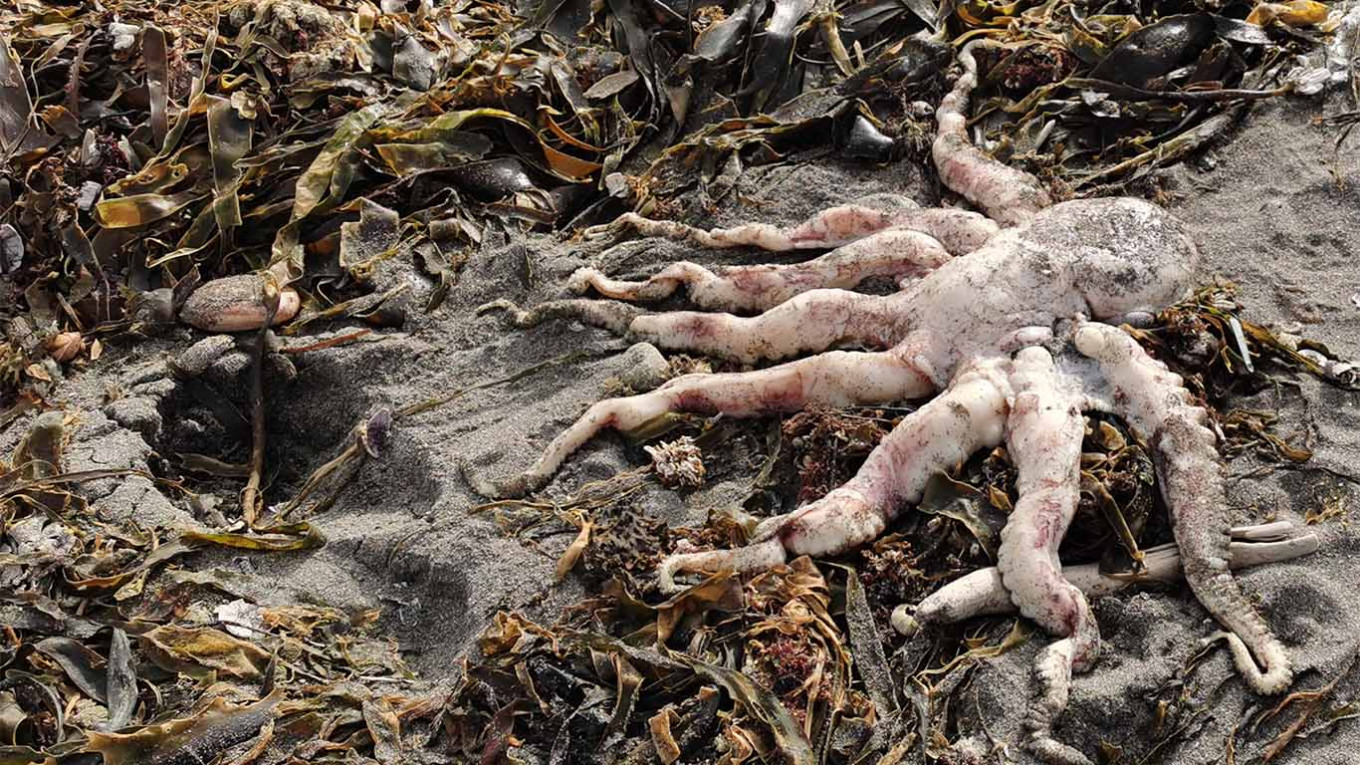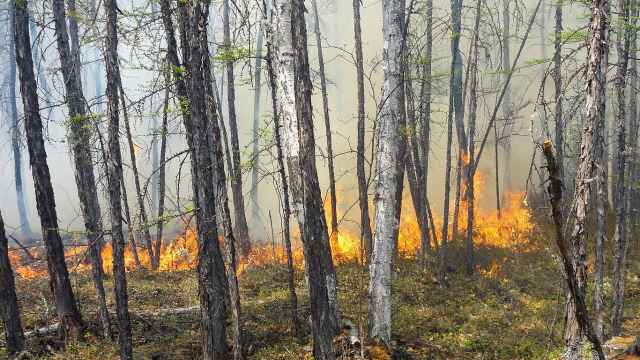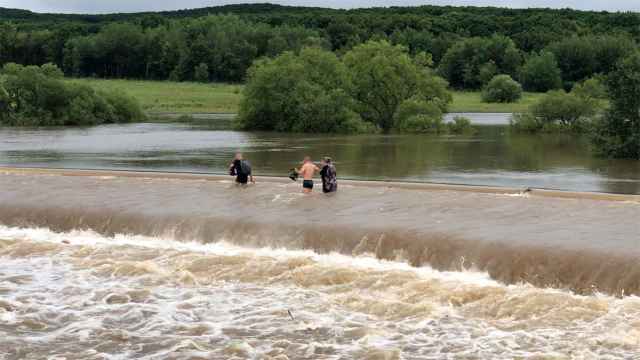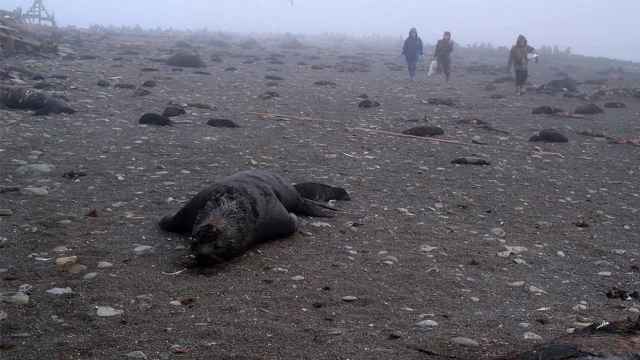New mass deaths of marine animals have been discovered off the coast of Russia’s Far Eastern Kamchatka peninsula where an unexplained event recently killed off up to 95% of seabed life, authorities said Monday.
Scientists and witnesses reported seeing dead marine animals along the seabed south of the initial discovery last week, Kamchatka region governor Vladimir Solodov said on Instagram. Neighboring beaches, he said, were not affected.
“The evidence shows that the scale of the occurrence is extremely large,” Solodov said.
He said that the deaths were “almost certainly linked to climate change and other polluting effects we as humankind cause to the Pacific Ocean.”
“We can’t say that a local man-made object near [the port city of] Petropavlovsk-Kamchatsky was the cause,” Solodov added. Environmental activists previously warned that the pollution could have come from a Soviet-era storage facility for poisonous chemicals that might have seeped out into the sea.
Russian Academy of Sciences vice president Andrei Adrianov said earlier in the day that the mass death was caused by toxins from microalgae known as algae bloom. The theory has been backed by leading Russian marine biologists, who pointed to the presence of yellow foam covering an area that can be seen from space.
Local surfers and swimmers initially raised the alarm last month after experiencing eye pain and nausea from going in the water. They grabbed national attention with shocking images of dead sea urchins, crabs and octopuses washed up on the shore of Khalatyrsky beach on Avacha Bay.
Solodov said he has asked the Russian government to form a “comprehensive research project” to study the mysterious die-off.
“We’ve encountered a new large-scale phenomenon that science has yet to comprehend,” Solodov said.
A Message from The Moscow Times:
Dear readers,
We are facing unprecedented challenges. Russia's Prosecutor General's Office has designated The Moscow Times as an "undesirable" organization, criminalizing our work and putting our staff at risk of prosecution. This follows our earlier unjust labeling as a "foreign agent."
These actions are direct attempts to silence independent journalism in Russia. The authorities claim our work "discredits the decisions of the Russian leadership." We see things differently: we strive to provide accurate, unbiased reporting on Russia.
We, the journalists of The Moscow Times, refuse to be silenced. But to continue our work, we need your help.
Your support, no matter how small, makes a world of difference. If you can, please support us monthly starting from just $2. It's quick to set up, and every contribution makes a significant impact.
By supporting The Moscow Times, you're defending open, independent journalism in the face of repression. Thank you for standing with us.
Remind me later.






